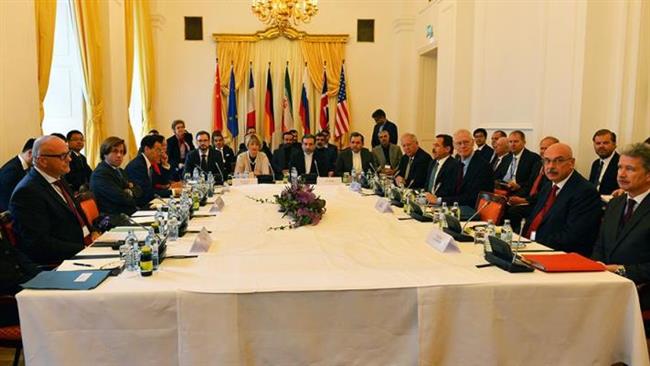
RNA - The Trump administration, however, has described Iran’s recent ballistic missile test as ‘provocative’ and outside the scope of the nuclear deal, using it as a pretext to impose new sanctions on several Iranian individuals and entities. Tehran said it was “unmoved” by the fresh sanctions, arguing that the country needed the missile program to enhance its defense capability and that the testing did not violate the nuclear accord.
Political commentator Nader Bagherzadeh said in an interview with Press TV said that the new administration in Washington is seeking to infuriate Iranian officials with its incremental economic sanctions to the point that they would ultimately leave the nuclear accord.
He predicted that the nuclear deal won't stay, because these additional sanctions will probably tighten the economic noose around Iran and eventually force the country to make a decision about how fruitful this agreement has been from an economic point of view.
“My feeling is that from the beginning, the sunset clause of this agreement was never acceptable to many in the United States, especially the Republicans," he said, elaborating, "By sunset clause, I mean where the advanced centrifuges would be probably going out of the R&D into the industrial phase. That was never going to be acceptable and I think they will do everything they can to basically either renegotiate or force Iran to exit the agreement.”
Asked about whether or not Donald Trump can persuade the European leaders to scrap the deal, Bagherzadeh replied that this is the very obstacle that has prevented US authorities from exiting the agreement so far. He added, however, that one must bear in mind that it is very difficult for European companies to lock horns with Washington and resist its pressure for a long time.
“There are some rumors [that] perhaps Total, the French oil company, might be very concerned with Donald Trump making these decisions. So, they may have a second thought about the agreement with Iran. I think I read that somewhere. The other oil companies that were planning to join, perhaps would have second thought, will question, will wait to see what the decisions are. Because they don’t want to deal with an angry United States in terms of new sanctions,” he explained.
“My feeling is that the incremental unilateral sanctions will tighten the noose and will scare more companies. We already know the large banks have been very scared of engaging with Iran for months. Companies may be following [suit]. That is unfortunate. But it seems that might be the case,” Bagherzadeh concluded.
847/940